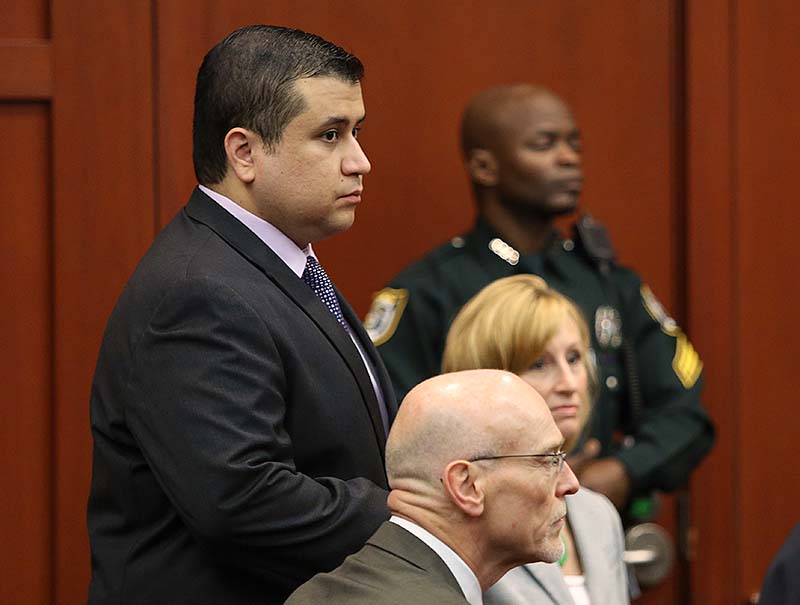SANFORD, Fla. — The jury in George Zimmerman’s murder trial began a second day of deliberations Saturday morning, weighing whether the neighborhood watch volunteer committed a crime almost a year and a half ago when he fatally shot Trayvon Martin.
Jurors reconvened in the courtroom at 9 a.m. Saturday. A few smiled as the judge addressed them before they left the courtroom to continue their discussions.
About two dozen people gathered outside the courthouse awaiting a verdict, with supporters of the Martin family outnumbering those there for Zimmerman. One man held a sign that read, “We love you George.” A woman lay in the grass in a hoodie, her arms spread, in a re-creation of Martin’s death.
On Twitter, Martin’s mother, Sybrina Fulton, shared what she called her favorite Bible verse: “Trust in the LORD with all your heart and lean not on your own understanding; in all your ways submit to him, and he will make your paths straight.”
On Friday afternoon, as the jury began deliberations, police and civic leaders in this Orlando suburb went on national television to plead for calm in Sanford and across the country if Zimmerman, who identifies himself as Hispanic, is acquitted. Martin was black.
Last year, people protested in Sanford and across the country when authorities waited 44 days before arresting Zimmerman.
On Friday, Seminole County Sheriff Don Eslinger said: “There is no party in this case who wants to see any violence. We have an expectation upon this announcement that our community will continue to act peacefully.”
Zimmerman, 29, is charged with second-degree murder, but the jury also is allowed to consider manslaughter.
The judge’s decision to allow that consideration was a potentially heavy blow to the defense: It could give jurors who aren’t convinced the shooting amounted to murder a way to hold Zimmerman responsible for the killing.
To win a manslaughter conviction, prosecutors must show only that Zimmerman killed without lawful justification.
Zimmerman faces a maximum prison sentence of life for second-degree murder and 30 years if convicted of manslaughter, due to extra sentencing guidelines for committing a crime with a gun.
The sequestered jury of six women – all but one of them white – must sort through conflicting testimony from police, neighbors, friends and family members.
Jurors deliberated for 3 1/2 hours when they decided to stop Friday evening. About two hours into their discussions, they asked for a list of the evidence. Their identities are being kept anonymous – they are identified only by number – but they revealed information about themselves during jury selection.
• B-51 is retired, not married and doesn’t have kids. She has worked in real estate and run a call center where she said she had experience resolving conflicts.
• B-29 recently moved to central Florida from Chicago. She works as a nurse on an Alzheimer’s section of a nursing home. She is married and has several children. A prosecutor described her as “black or Hispanic” during jury selection.
• B-76 is a white woman who has lived in central Florida for 18 years. She manages rental properties with her husband of 30 years. She has two adult children.
• B-37 is a white woman who volunteers rescuing animals. She is married to an attorney and has two adult children.
• E-6 is married and has two children. She has worked in financial services and is active in her church.
• E-40 works as a safety officer and recently moved to Seminole County from Iowa.
Send questions/comments to the editors.



Success. Please wait for the page to reload. If the page does not reload within 5 seconds, please refresh the page.
Enter your email and password to access comments.
Hi, to comment on stories you must . This profile is in addition to your subscription and website login.
Already have a commenting profile? .
Invalid username/password.
Please check your email to confirm and complete your registration.
Only subscribers are eligible to post comments. Please subscribe or login first for digital access. Here’s why.
Use the form below to reset your password. When you've submitted your account email, we will send an email with a reset code.